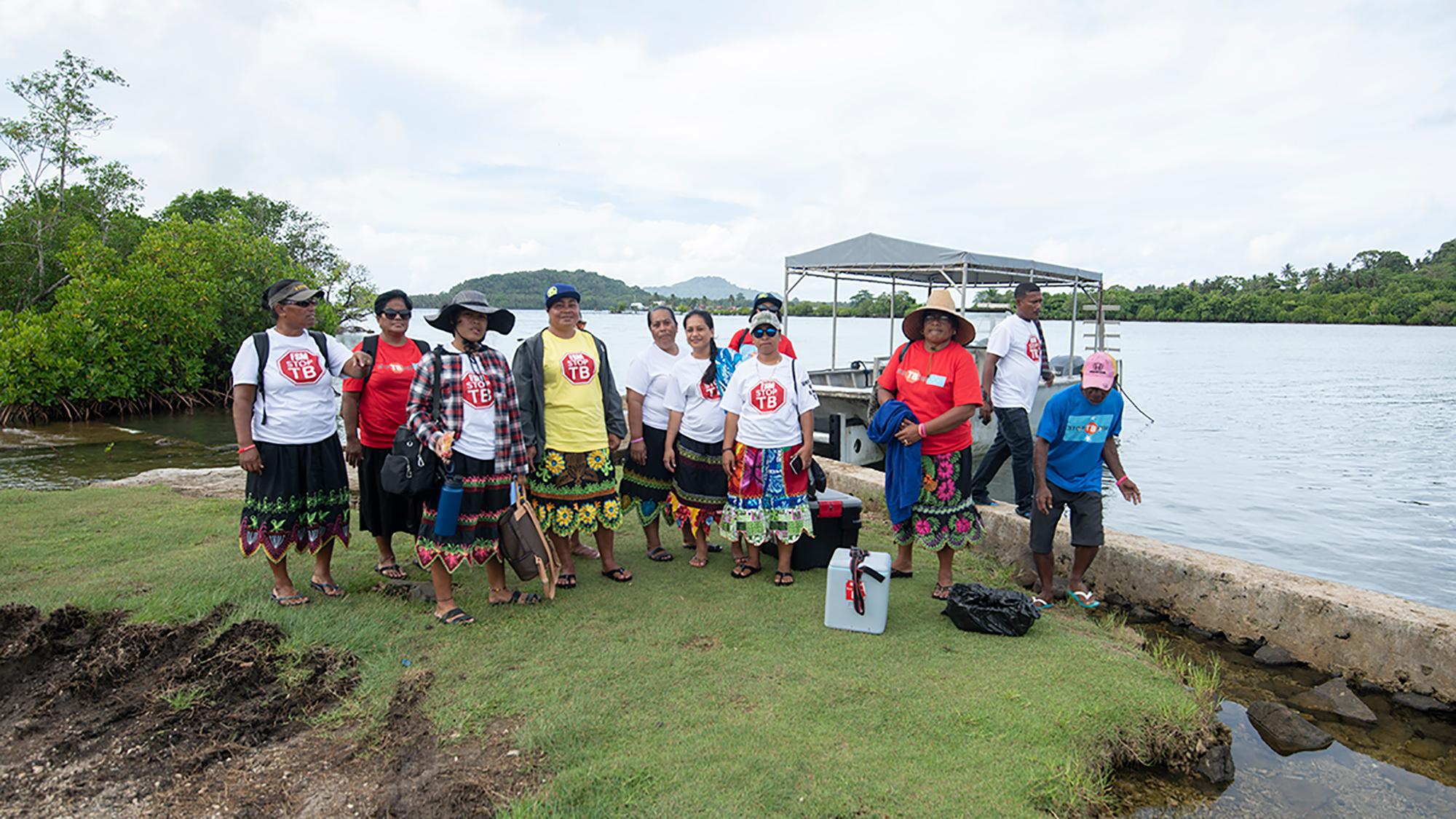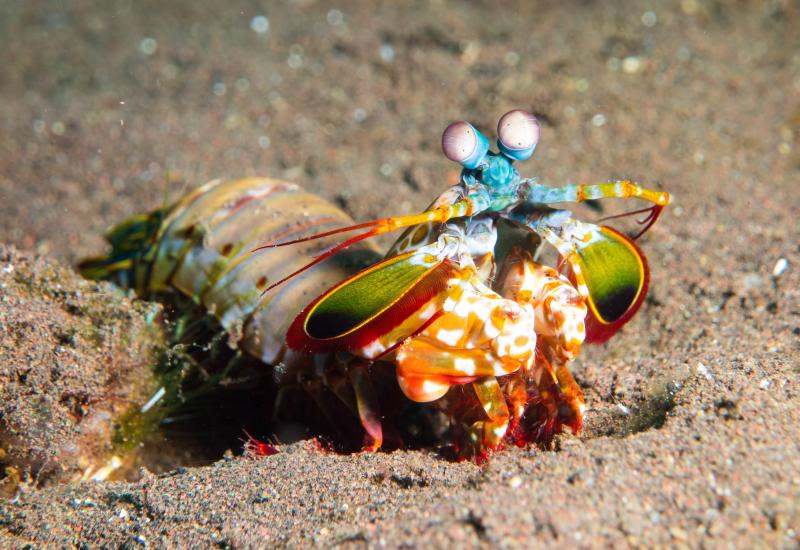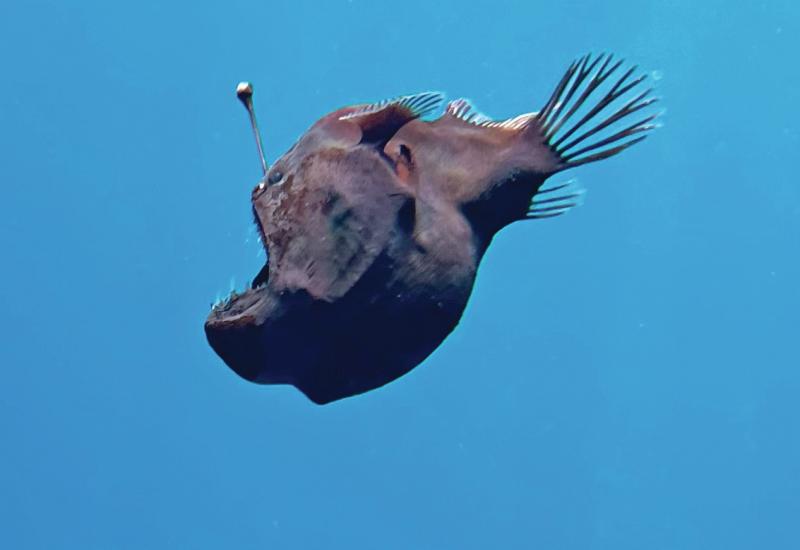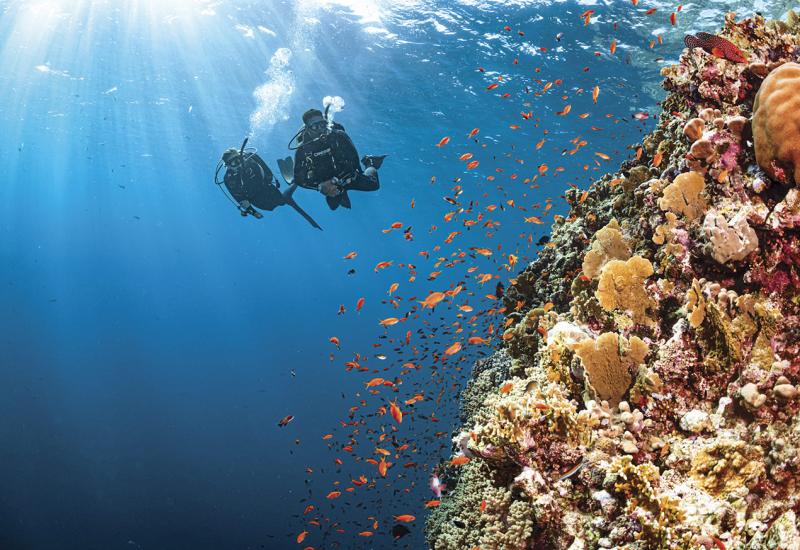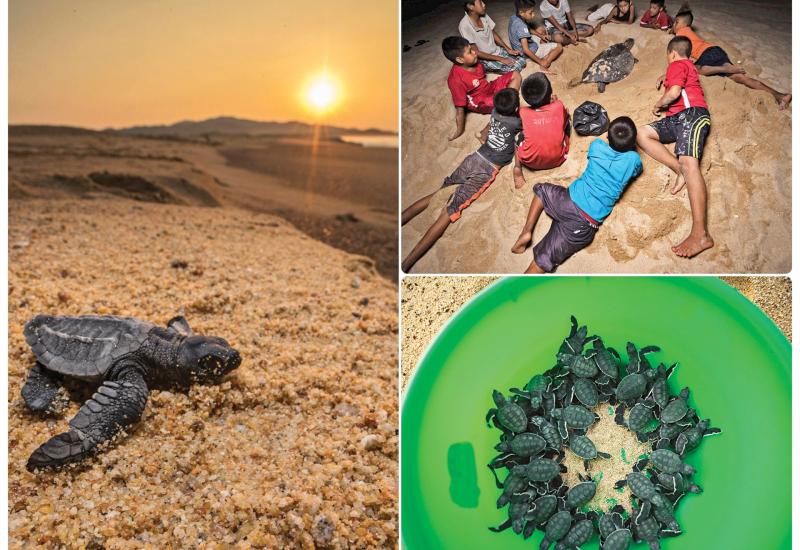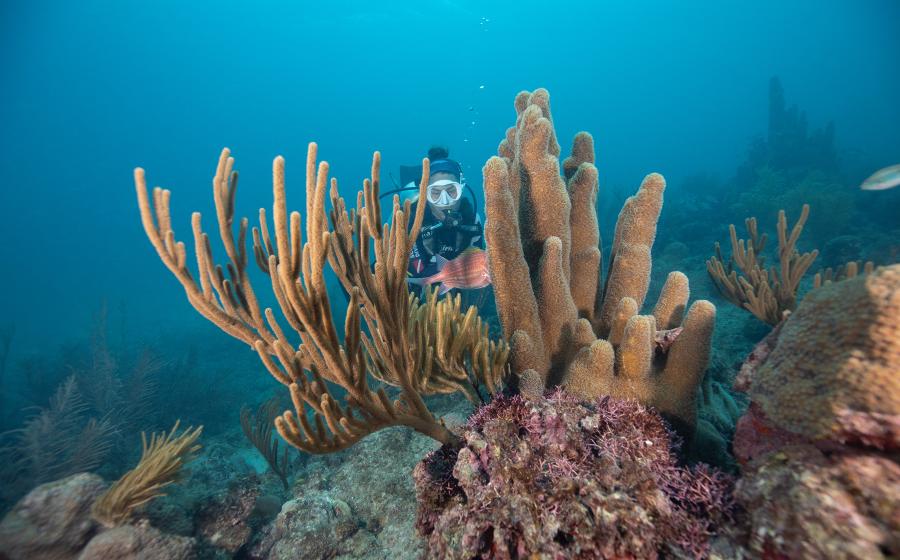Scuba Liveaboard Aids COVID Vaccine Distribution in Truk Lagoon
Distributing a chilled vaccine across 74 tropical islands scattered in the Pacific ocean is a mean feat that keeps Micronesia’s president, David Panuelo, up at night.
Even at the best of times, his country’s healthcare system struggles — there is only one hospital in each state and residents are referred to the United States for specialized medical care.
“It's a health system that even the very best of times does not function nearly as well as most citizens would hope, certainly as much as we need or deserve, “ says Richard Clark, public information officer for the president’s office, pointing to children that have recently died in Micronesian hospitals of constipation. “Obviously nobody should die from something that's so easily solvable.”
Pre-existing conditions for developing serious COVID, like obesity and conditions like heart disease have proliferated in recent years.
“One of the fears of COVID-19 arriving into the country is that not only do we see a disproportionate amount of our medical professionals having to deal with the virus instead of other ongoing issues, but that we would see higher mortality rates from the rest of our population,” he says, adding nobody in the nation knows how to use the ventilators the U.S. provided them more than a year ago after the pandemic began.
President Panuelo sealed the nation’s borders completely last March to keep out the pandemic. This kept COVID from the islands, there has not been a single active case, but not even Micronesia’s own citizens can cross the blockade. An estimated 900 Micronesians have been stranded abroad for more than a year and counting. Full-scale repatriation efforts are untimely until the country reaches herd immunity, a 70 percent vaccination rate. Restarting tourism falls somewhere after that.
Into this nationwide crisis stepped one dive operator, determined to be a part of the solution.
Becoming a Vaccination Vessel
When Lenny Kolczynski heard in early January few vaccines had been distributed, he realized he could speed things up.
“The hospital [for the Micronesian state of Chuuk] is on the main island of Weno,” Kolczynski explains. “And that island is easy, because everybody can just drive over there and get their shots, but all the other islands, they have to have boat transport” to get the vaccines there.
As president of Odyssey Adventures, he was a man with the boat for the moment. The M/V Odyssey, his empty dive liveaboard, was idling around Chuuk.
Typically cruising the WWII wrecks in Truk Lagoon, no tourist had set foot on the ship in more than a year. But there was a skeleton crew already in place, including a captain, living in-country to tend to the vessel during the shutdown. Their salaries and utilities were already covered by a state stimulus for tourism operators impacted by the pandemic. And, even better yet, “we have reliable electricity, we have rooms for 16 passengers, and we can bring the boat” to any lagoon island, Kolczynski said.
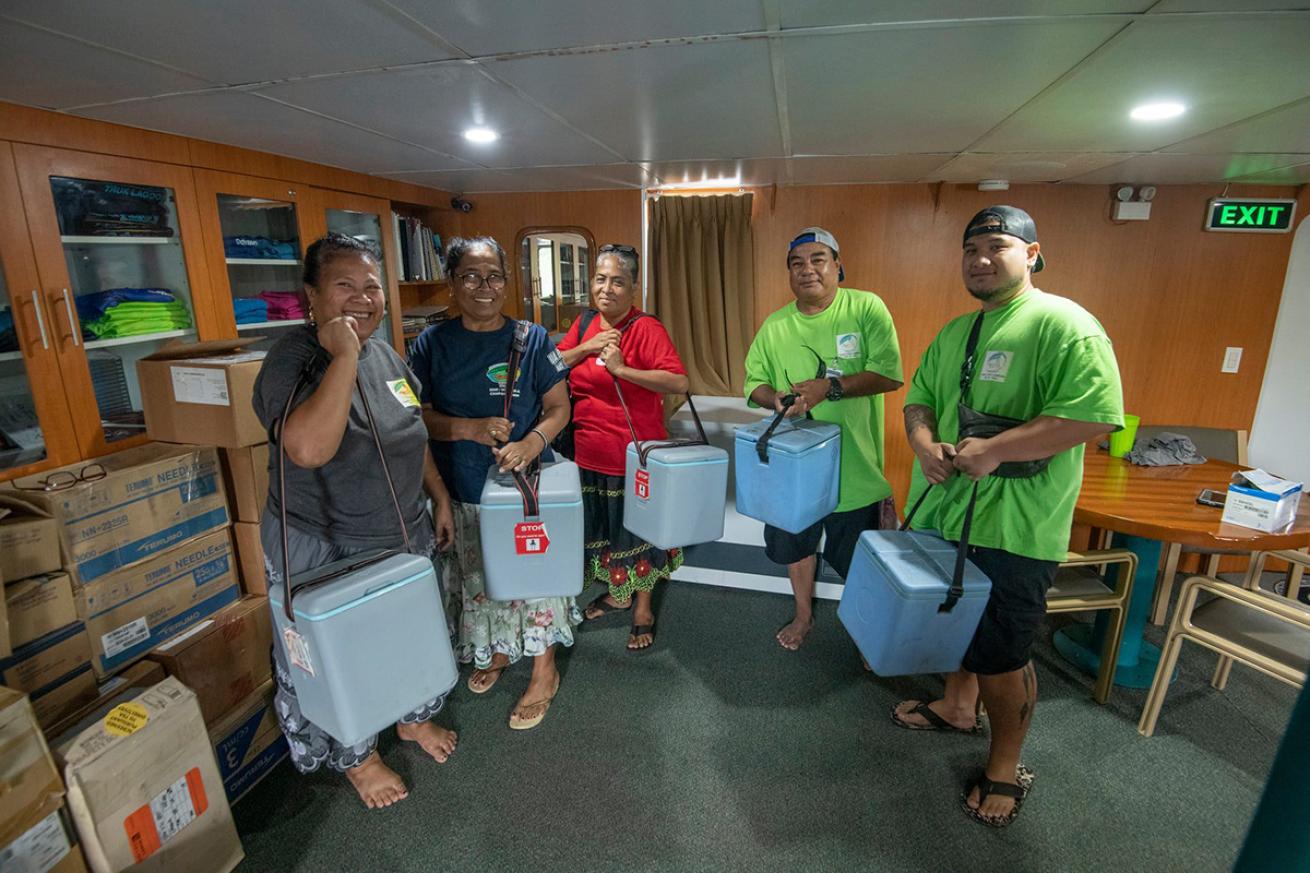
Michael GerkenThe Micronesian public health team stands in the salon of the M/V Odyssey with ice-packed coolers to keep Moderna doses stable while taking them to shore during a vaccination effort at Fefan Island.
Kolczynski connected with Chuuk’s COVID task force and Public Health Department. Two months later, the Odyssey anchored outside Chuuk’s Uman laden with Moderna shots and a medical team to administer them.
“They're able to do it a lot faster by not having to travel back and forth by a small skiff every day” from Weno to other Chuuk islands, says Kolczynski. His floating hotel lets the medical team work in the field for up to 10 days at a time.
Odyssey Adventures estimates their participation is cutting the time horizon to vaccinate Truk Lagoon by more than half. “That's better for everybody,” Kolczynski says.
All Hands on Deck
Chuuk state officials are alerting village elders and NGOs before the Odyssey arrives so they can let their neighbors know vaccines are coming to town. When the local health crew arrives, doctors, nurses and clerks set up a mobile vaccination station in a community hub. Risk communicators are also on hand to explain potential adverse vaccine reactions, what to do if COVID does ever reach the island, and counter any vaccination rumors spreading on social media.
On the first island, Uman, the team delivered about 650 vaccines, and then another 900 on the second island of Tonowas. The process has been repeated at Fefan, Param, and Tsis, in addition to a loop back to Uman to deliver the second round of Moderna shots. The Odyssey may be involved in a vaccination effort for Truk Lagoon’s western islands after distributing the second dose along the islands in the east. MMR vaccines are being distributed to children alongside the adult COVID inoculation effort.
“There's also a select group of people in these villages who are elderly or handicapped,” says the Odyssey’s Captain Mike Gerken. When the medical team finishes at the main vaccination station, “they start going around house to house and they administer the COVID vaccine directly in the person's home, which is pretty progressive.”
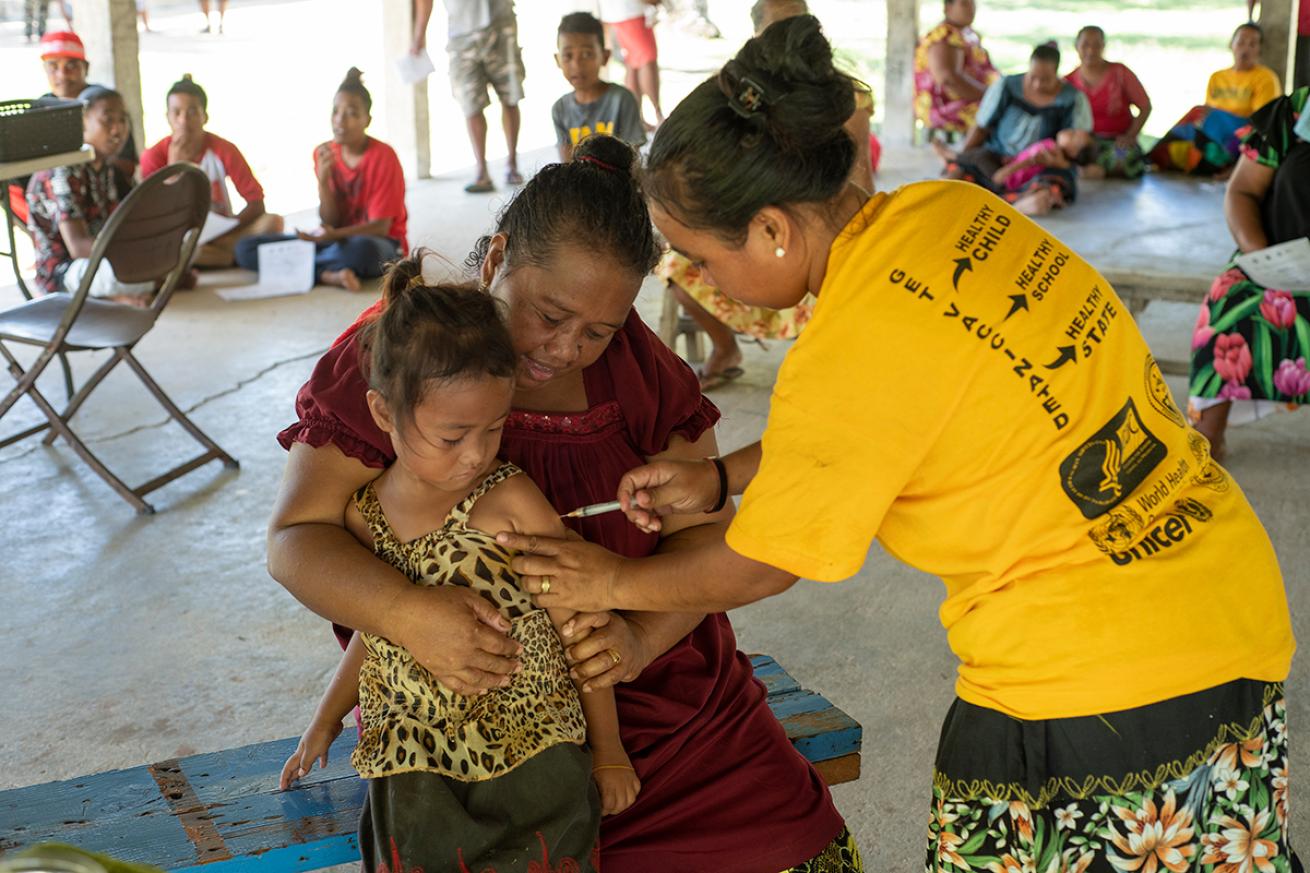
Michael GerkenThe Chuuk Health Department is delivering childhood vaccines along with the COVID-19 vaccinations.
In the evening, the medical team returns to the ship for dinner and a good night’s sleep before repeating the effort at a new village the next day.
Behind the scenes, the Odyssey’s crew bustles to make the operation run. The chef prepares every cup of morning coffee and packs lunches the deckhands load into the skiffs, along with vaccine-packed coolers, to drive the medical team to the island. The housekeeper prepares the ship for their return. Gerken moves the ship between ports so the medical team wakes up where they need to be, and picks up fresh provisions in between outings.
“We are very fortunate that Odyssey and their management offer us their service, that they then provide that transportation [and] accommodation while doing the outreach services in the Truk Lagoon,” says Dr. Kennedy Remit, chief of staff at Chuuk’s Department of Health Services.

